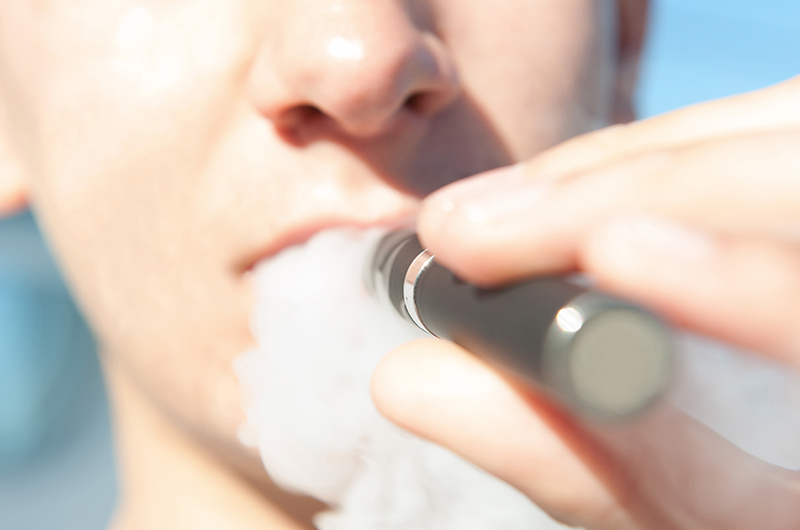There’s a new health issue for parents to be aware of. Across the country, middle schools and high schools have seen an increase in disciplinary referrals due to e-cigarettes, or vaping.
Gaining popularity over the last decade, vaping devices can look like a pen, stylus, or flash drive (as in the case of JUUL devices) and can easily be hidden or blend-in with other backpack items.
E-cigarettes do not burn tobacco as real cigarettes do, although the liquids that are used and inhaled do contain nicotine. When vaping, one breathes-in tiny particles that can harm the lungs. Additionally, the nicotine in the vapor is addictive, and the users begins to crave the nicotine more frequently. Nicotine affects memory and concentration, making it difficult for students to concentrate on schoolwork.
Because there are thousands of different liquids that can be used for vaping—some of which contain illegal substances—identifying the contents of the liquids can be very difficult. Therefore, using any vaping device or e-cigarette on school property is prohibited and can result in a variety of consequences.
Parents can look for the signals that may indicate their student could be vaping:
Unfamiliar Objects
While vaping devices come in a variety of shapes and sizes, parents should examine items that look like pens. If you find a pen which doesn’t write, or a stylus which doesn’t have a soft, rubber tip, it may be a vaping device, which will have a hole at one or both ends. If you find a flash drive that doesn’t fit the USB port on your computer, it may be a vaping device.
New Aromas
Vaping doesn’t always have a smell associated with it; however, the liquids marketed to younger users may have a very pleasant smell. If you suddenly start smelling aromas like mint, fruit punch, or candy around your home, track down the source.
Always Thirsty
The chemical used in vaping flavors can absorb water molecules from the mouth. If your student is suddenly drinking a lot of water, or has constant dry mouth, it could be from vaping.
For more information, the Surgeon General has an excellent tip sheet which will help parents get all the facts, know the risks, and enable adults to start the conversation with children.


Leave a Reply